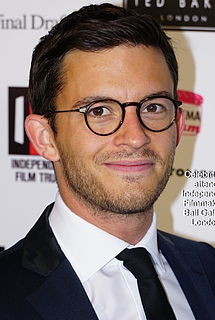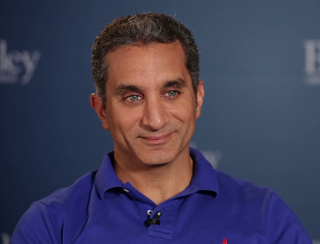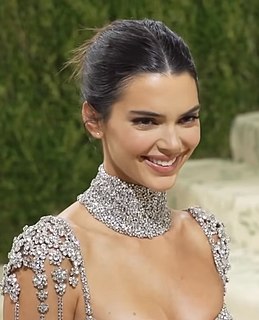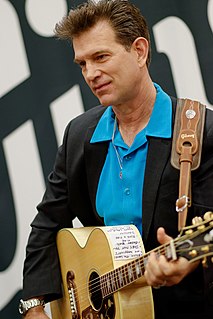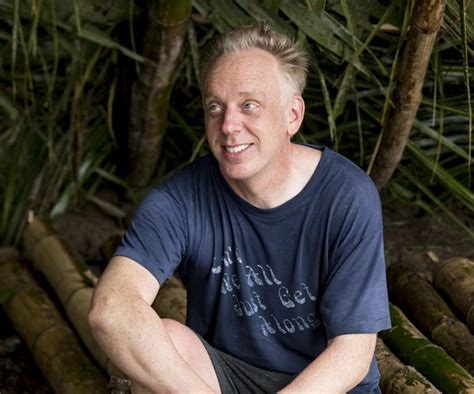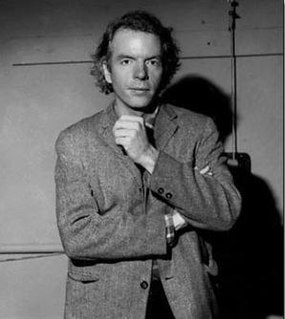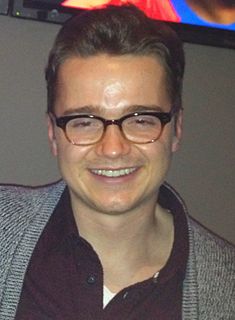A Quote by Bernardo Bertolucci
I think that what I learned then, I didn't know I was learning. I just knew that I was very privileged to see somebody who was a writer, a great poet, and very smart-faced. Suddenly Pasolini becomes a director, so he has to invent cinema. It was like watching the invention of cinema. But I found out that Pasolini taught me a lot. It was, especially, the kind of respect that he had for reality. He had kind of epiphanies in his movies, like when a moment becomes full of grace, and it is like as if it was the most important moment in the life of a character.
Quote Topics
Becomes
Character
Cinema
Director
Faced
Found
Full
Grace
Great
Great Poet
Had
His
Important
Invent
Invention
Just
Kind
Knew
Know
Learned
Learning
Life
Like
Lot
Me
Moment
Most
Movies
Out
Poet
Privileged
Reality
Respect
See
Smart
Somebody
Suddenly
Taught
The Most Important
Then
Think
Very
Very Smart
Watching
Writer
Related Quotes
I don't know - I feel like someone would think of me, or anyone in my family, as unappreciative of a moment, and I've really learned to appreciate a moment. I take things in a lot. I'm kind of weird like that. I like to go outside at night by myself and look at the sky and just appreciate it. I'm not that big of a weirdo, but - occasionally.
I watch mainly fiction. The films I like watching are films where you see people change, like with Boyhood. You see a moment in someone's life where it's a breakthrough. For me, the breakthrough in Boyhood is that amazing moment right at the end when he finds somebody he can feel relaxed with, and who will maybe be a friend for the rest of his life. I like that it doesn't end in a love affair or marriage. It just ends in, "Wow, I found people I can relate to for the first people in my life. These people accept me, I like them."
[A]s soon as you try and take a song from your mind into piano and voice and into the real world, something gets lost and it's like a moment where, in that moment you forget how it was and it's this new way. And then when you make a record, even those ideas that you had, then those get all turned and changed. So in the end, I think, it just becomes it's own thing and really I think a song could be recorded a million different ways and so what my records are, it just happened like that, but it's not like, this is how I planned it from the very beginning because I have no idea, I can't remember.
Have you ever had a moment where you finish a piece, and then all of a sudden the piece sort of takes on it's own life beyond you? It doesn't happen every time, but there are some pieces where that happens, and I love that. I feel like that's what I'm seeking nowadays, that moment of transcendence with a piece. Where this thing becomes larger than me as a person. It becomes otherworldly, and then I get separated as maker from it, and then it has it's own life. I love that.
I remember I grew up in Pasadena in a very, kind of, homogeneous, kind of, suburban existence and then I went to college at Wesleyan University in Connecticut. And there were all these, kind of, hipster New York kids who were so-called 'cultured' and had so much, you know, like knew all the references and, like, already had their look down.
I sometimes feel that I am trying to dig in the world around me. I'm involved in another kind of archaeology to look for another kind of truth, and the moment I find, the moment I am separated from that life, the moment I am sort of in a world, every time I have gone out and performed in the, in the cinema for example, if you do two or three films on the trot you suddenly have this impression that you're becoming separate or separated from the world around you.
Hair is very, very distinctive. I started that with that boxing movie I did, The Great White Hype. The director wanted me to look like Don King, and everybody knew who Don King was. But I didn't want to be Don King. I wanted the man to be Rev. Fred Sultan, so I decided to make him look like Julius Caesar. And from that point on, I just decided, I had this great wig-maker, so I just found hairstyles that I felt would be distinctive for every character. Like an adventure.
It wasn't like this happy-go-lucky experience, shooting Norman movie. It was something I kind of had to, sort of dedicate a certain level of focus and energy to kind of just stay in this headspace that would allow me to access - because it's also a very emotional movie at times. This was the first time I ever played a real character, a fully fleshed out, dimensionalized, multi-faceted character, as opposed to a part. There's not very much opportunity for somebody of my age and my look, so for a character-driven piece like this to come along is a rare thing.
I believe, and this is something I also learned from Alice Munro, that there's a moment where the personal becomes totally universal. When you see that person in their pathetic moment, that's the moment where the completely unifying sympathy with that person is possible - where you're no longer a person here and they're someone over there, and you can really feel like one, you can really feel like a human being. Or more like, you can really feel like flesh and blood, because I feel like that moment is the same thing with animals.


